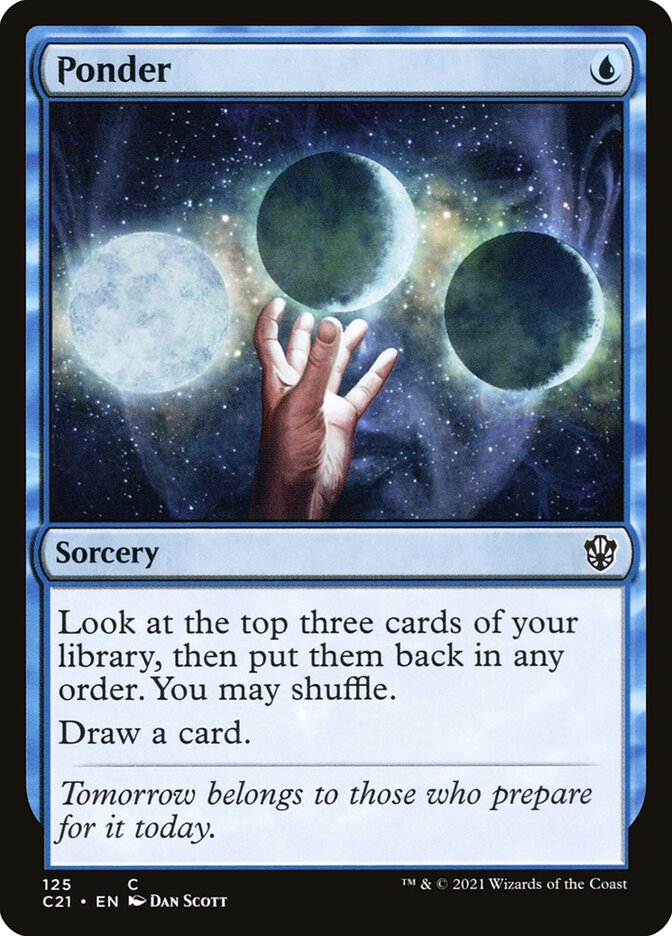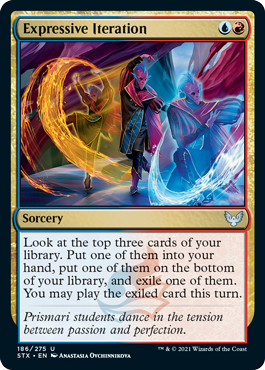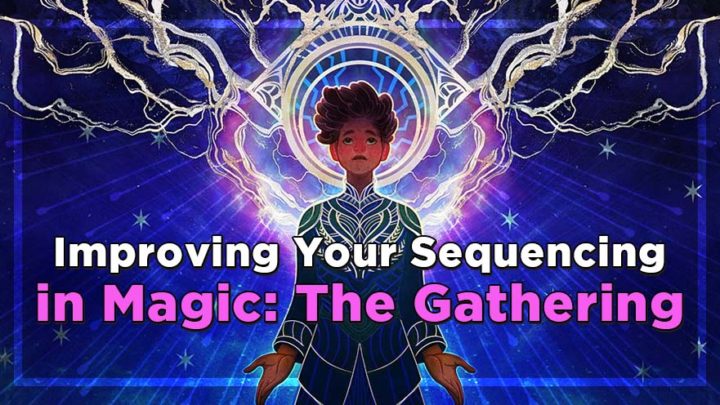Thanks for reading this week’s article! Make sure to tweet at me at @masoneclark with your thoughts.
…Wait, that’s not how this article is supposed to start!
Whether you’re writing an article, following a recipe, or playing a game of Magic, the order in which you do things matters. Otherwise, you might end up making mistakes that were totally avoidable.
In Magic, we call this concept sequencing. Sequencing encompasses every action you take in a game of Magic: casting spells, playing lands, when you attack, and so much more.
Today, we’ll be diving deep on sequencing. We’ll cover why it’s so important in all card games — but especially in Magic — and how we can work on improving this aspect of our game.
Why Sequencing Is Important

How many times has your friend said this to you after a match: “Ahh, I just cast the wrong spell! I should have cast X before Y!”
Sequencing mistakes happen all the time, especially in card games. There are so many small decisions to make in each game, and you also have to take into account how your opponent will respond.
Take the newly popular Digimon TCG, for example. In Digimon, whenever you spend mana, you give that much mana to your opponent to spend on their next turn. So, whenever you take your turn, you want to make sure you cast as many spells as you possible while allowing your opponent to have as few plays as possible.
The same is true in Magic. Sure, you could cast your two-drop into your opponent’s open mana, but maybe you’ll be better off waiting to cast two spells on a later turn. That way, you can strand your opponent’s counterspell in their hand this turn and overwhelm them later on.
These small optimizations are what separate good Magic players from great ones. While it’s nearly impossible to play a perfect game of Magic, the winner is often the person who makes the fewest mistakes. Sequencing your plays correctly is a crucial skill to learn if you want to improve as a player.
How to Improve Your Sequencing

If you want to work on your sequencing, here are three tips to get started:
Plan out as much of your turn as you can. There will be points where you need them to react before you can make a choice, but you can often plan out most of your turn before you actually start casting your spells.
Take a minute to think through your decisions. If there are a few different plays you could make, it’s worth taking the time to consider the possibilities. Should you cast your spell before attacking? If you have two creatures you can play, which should you cast first? Thinking through how your opponent might respond to your plays will drastically increase your win percentage. It will also help you consider if there is a way you can beat them having a certain card, by sequencing your spells in a certain way.
Reflect on your decisions post-match and map out different possibilities. I’d recommend doing this even if you won the match. Just because you won the game doesn’t mean every choice you made was correct, and there could still be a lot to learn from looking back on your games.
Improving at Magic is a slow process, and the elements of variance and luck in the game can make it hard to gauge how you’re doing. “Am I actually improving? I keep losing my matches.” “What if I’m just unlucky?” “Did I win my match because I made the right decisions, or did my opponent make any mistakes?” These are feelings that many Magic players can relate to.
The good news is that your sequencing is one aspect of your game that you have control over. And better yet, it’s a skill you can practice every time you play a game of Magic.
Thanks for reading this week’s article! Make sure to tweet at me at @masoneclark with your thoughts.

Mason Clark is a grinder in every corner of the game who has played at the pro level and on the SCG Tour with Team Nova. Whether he’s competing in Standard, Historic or Modern, Mason plays with one goal in mind: to be a better player than he was the day before. Check out his podcast, Constructed Criticism, and catch his streams on Twitch.

